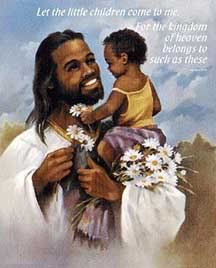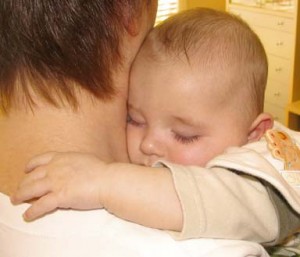“Truly I tell you, unless you change and become like children, you will never enter the kingdom of heaven.” [Matthew 18:3, NRSV]
Christmas is more than a rumour.
On Christmas Day at Bethlehem, the ancient rumours of God’s love became physically real in the gift of a Baby born in a manger. When the Evangelist John wrote that “God loved the world so much He gave His Only Son” [John 3:16], that the Word – which was the source of life bringing light to the people to shine in human darkness [John 1:4-5] – took flesh and dwelt amongst us [John 1:14], we should have realized that the Christian faith is not just a heap of doctrines and theological jargons; rather, the Christian faith, to be real, just as Jesus the Christ is real, has got to be a healthy blend of the spiritual and the mundane, a marriage of the unsurpassable beauty of the divine with the rough and tumble of the concrete and the fleshy.
- He took flesh.
- He became one of us.
- He lived and experienced our human conditions.
- True God, yes; but true man, certainly.
Never can any theology be profitable that does not pay heed to the tremendous reality that Jesus was truly human, reducing him to a mere divine caterer to our idiosyncrasies, and ignoring the way he had modeled for us to live by. Unfortunately, as Jesuit theologian Karl Rahner has observed, many Christians are actually crypto-Monophysites. Monophysitism developed as a divergent teaching after, and in opposition to, the “True Good and True Man” doctrine of the Council of Chalcedon [451 A.D.]. Monophysites believe that Jesus Christ’s nature remains altogether divine and not human even though he has taken on an earthly and human body with its cycle of birth, life, and death. They insist that in the person of Jesus Christ there was only one, divine nature rather than two natures, divine and human, as Chalcedon asserted. Amongst other things, in Rahner’s observation of the majority of Christians being Crypto-Monophysites, Christians tend to be quite oblivious to Jesus’ human suffering, attending not to his needs but in a very “focused” and “prayerful” way seeking nothing but blessings and more blessings from him.
Yet, the birth of Jesus signals the vocation of love, first in him, and then in us who would follow him – a vocation that is realized in concrete human terms, in the fleshy and bodily relationship. This fleshiness provides the essential dimension and an essential aid to our experience of God’s love. It has got to be through what we hear, what we see, what we touch – in the concrete, in the real. And so St. John would open his First Epistle thus:
- We declare to you what was from the beginning, what we have heard, what we have seen with our eyes, what we have looked at and touched with our hands, concerning the word of life – this life was revealed, and we have seen it and testify to it, and declare to you the eternal life that was with the Father and was revealed to us — we declare to you what we have seen and heard so that you also may have fellowship with us; and truly our fellowship is with the Father and with his Son Jesus Christ. We are writing these things so that our joy may be complete. [1 John 1:1-4, NRSV]
Some years ago, a friend sent us this story which we found very touching. Apart from the human touch, we enjoyed the allusions to God and the gift of His Son. This year, to our pleasant surprise, the story popped up again. We post it here for timely reflection. Enjoy.
We were the only family with children in the restaurant. I sat Erik in a high chair and noticed everyone was quietly sitting and talking. Suddenly, Erik squealed with glee and said, “Hi.” He pounded his fat baby hands on the high chair tray. His eyes were crinkled in laughter and his mouth was bared in a toothless grin, as he wriggled and giggled with merriment.
I looked around and saw the source of his merriment. It was a man whose pants were baggy with a zipper at half-mast and his toes poked out of would-be shoes. His shirt was dirty and his hair was uncombed and unwashed. His whiskers were too short to be called a beard and his nose was so varicose it looked like a road map.
We were too far from him to smell, but I was sure he smelled. His hands waved and flapped on loose wrists. “Hi there, baby; hi there, big boy. I see ya, buster,” the man said to Erik.
My husband and I exchanged looks, “What do we do?”
Erik continued to laugh and answer, “Hi.”
Everyone in the restaurant noticed and looked at us and then at the man. The old geezer was creating a nuisance with my beautiful baby. Our meal came and the man began shouting from across the room, “Do ya patty cake? Do you know peek-a-boo? Hey, look, he knows peek-a-boo.”
Nobody thought the old man was cute. He was obviously drunk.
My husband and I were embarrassed. We ate in silence; all except for Erik, who was running through his repertoire for the admiring skid-row bum, who in turn, reciprocated with his cute comments.
We finally got through the meal and headed for the door. My husband went to pay the check and told me to meet him in the parking lot. The old man sat poised between me and the door. “Lord, just let me out of here before he speaks to me or Erik,” I prayed. As I drew closer to the man, I turned my back trying to sidestep him and avoid any air he might be breathing. As I did, Erik leaned over my arm, reaching with both arms in a baby’s “pick-me-up” position. Before I could stop him, Erik had propelled himself from my arms to the man.
Suddenly a very old smelly man and a very young baby consummated their love and kinship. Erik in an act of total trust, love, and submission laid his tiny head upon the man’s ragged shoulder. The man’s eyes closed, and I saw tears hover beneath his lashes. His aged hands full of grime, pain, and hard labor, cradled my baby’s bottom and stroked his back. No two beings have ever loved so deeply for so short a time.
I stood awestruck. The old man rocked and cradled Erik in his arms and his eyes opened and set squarely on mine. He said in a firm commanding voice, “You take care of this baby.”
Somehow I managed, “I will,” from a throat that contained a stone.
He pried Erik from his chest, lovingly and longingly, as though he were in pain. I received my baby, and the man said, “God bless you, ma’am, you’ve given me my Christmas gift.”
I said nothing more than a muttered thanks. With Erik in my arms, I ran for the car. My husband was wondering why I was crying and holding Erik so tightly, and why I was saying, “My God, my God, forgive me.”
I had just witnessed Christ’s love shown through the innocence of a tiny child who saw no sin, who made no judgment; a child who saw a soul, and a mother who saw a suit of clothes. I was a Christian who was blind, holding a child who was not. I felt it was God asking, “Are you willing to share your son for a moment?” when He shared His for all eternity.
The ragged old man, unwittingly, had reminded me, “To enter the Kingdom of God, we must become as little children.”
Sometimes, it takes a child to remind us of what is really important. We must always remember who we are, where we came from and, most importantly, how we feel about others. The clothes on your back or the car that you drive or the house that you live in does not define you at all; it is how you treat your fellow man that identifies who you are.
Peace to you all!
© Dr. Jeffrey & Angie Goh, December 2014. All rights reserved.
You are most welcome to respond to this post. Email your comments to jeffangiegoh@gmail.com. You can also be dialogue partners in this Ephphatha Coffee-Corner Ministry by sending us questions for discussion.



